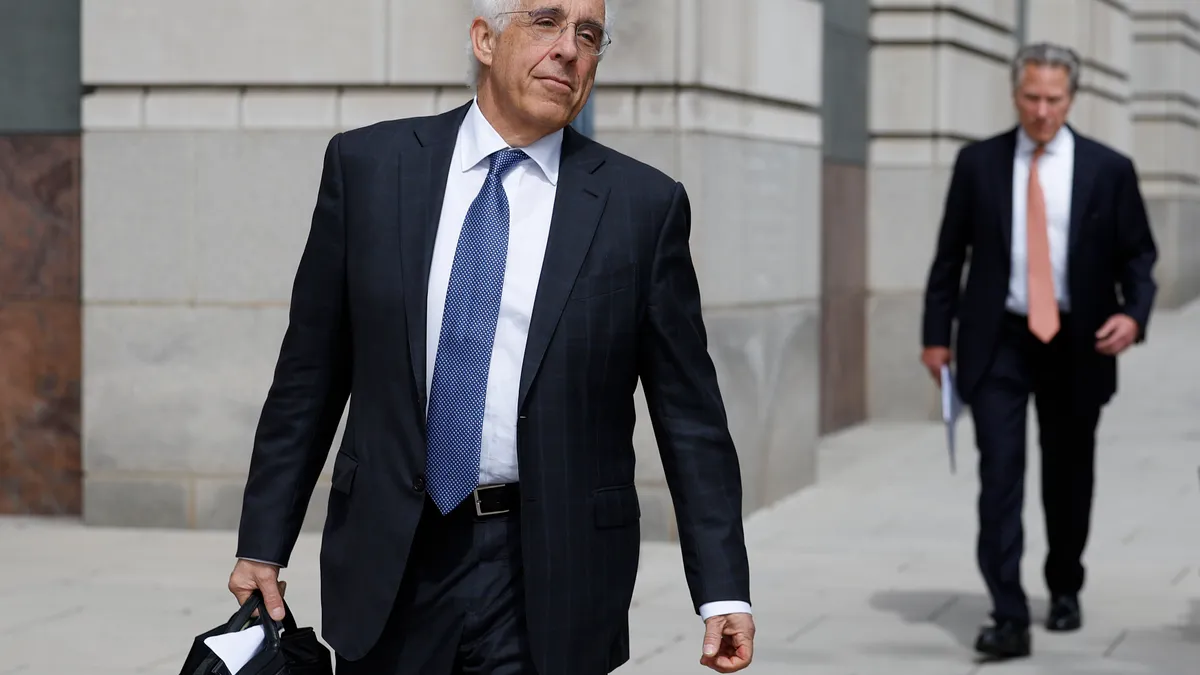Dive Brief:
- Social media app TikTok argued Monday before the U.S. Court of Appeals for the DC Circuit that a U.S. law seeking to force the sale of its U.S. business, or face a ban, unconstitutionally violates its First Amendment rights. About 170 million Americans use the video-sharing app, according to the company.
- The Justice Department says the platform represents a national security threat, with the potential to collect and use U.S. consumers’ data and to spread propaganda on behalf of China. Groups supporting the government’s position argue in their briefs that TikTok is incorporated abroad, with no U.S. operations, and enjoys no First Amendment protections. Much of the Justice Department’s evidence to support its contentions has been classified and redacted in court filings. (That evidence is available to the three-judge appeals panel.)
- Under the law, TikTok — owned by Beijing-based ByteDance Ltd — faces a Jan. 19, 2025, deadline to sell its U.S. operation or shut down. Both sides have asked the court for a decision by early December to help facilitate appeals. The losing party is expected to appeal to the Supreme Court.
Dive Insight:
The DC Appeals Court consolidated three lawsuits, including the company’s complaint, that target the law President Joe Biden signed in April. The others were filed by a group of content creators that use TikTok for their business and a nonprofit political group called BASED Politics.
“Unlike broadcast television and radio stations, which require government licenses to operate because they use the public airwaves, the government cannot, consistent with the First Amendment, dictate the ownership of newspapers, websites, online platforms and other privately created speech forums,” TikTok said in its complaint.
The government argues that the law doesn’t target speech but rather TikTok’s foreign ownership structure.
TikTok is being punished for potential future transgressions, with the government alleging no actual malfeasance, the company’s lawyer, Andrew Pincus of Mayer Brown LLP, argued Monday before the panel.
The company also argues that selling its U.S. business “and completely severing it from the globally integrated platform of which it is a part is not commercially, technologically, or legally feasible.”
TikTok says it has spent more than $2 billion to implement parts of a National Security Agreement it drafted with U.S. Treasury officials. The company says that the plan would address U.S. concerns and give the government the right to suspend TikTok’s operations if it doesn’t meet its obligations under the security plan.
In an amicus brief, Ajit Pai, the former chairman of the Federal Communications Commission and Thomas Feddo, the former Assistant Treasury Secretary who oversaw the Committee on Foreign Investment in the U.S., argue that Congress has intervened repeatedly to address Chinese ownership of U.S. companies.
Pai and Feddo told the court it’s “ludicrous to suggest, as TikTok does, that the U.S. Government cannot prefer divestiture as a policy option, or that it must wait for Americans to be compromised before it can act.”
A company also shouldn’t be able to use “the mere fact that it engages in expressive activity to invoke the First Amendment” if the government has determined that its ownership and relationship to a foreign adversary poses a national security danger, Pai and Feddo said in their brief.
In its complaint, BASED Politics says the law also constitutes “a prior restraint on speech by empowering the President to pre-approve TikTok’s buyer — and therefore TikTok’s next editor — and thus determine the [content] of speech that will be published on TikTok.”
Hannah Cox, a co-founder of BASED Politics, also has argued that even if China were to disseminate propaganda via TikTok, propaganda qualifies as speech and people should discern for themselves the basis and value of that speech.
The company could also face a respite if Donald Trump wins the November election, Politico reported Monday. Trump, who signed an executive order in 2020 targeting TikTok as a threat, has subsequently vowed to “never ban TikTok” if he wins a second term.
However, if the law survives judicial scrutiny and Trump were to direct the Justice Department not to enforce a ban on the platform, companies that sell mobile apps and internet service providers would still be reluctant to do business with TikTok, Politico reported.
“I think it would be insane for a general counsel to sign off on that because you’re still violating the law, and Trump is incredibly fickle, and it’s just like, ‘Why would you do this?’” University of Minnesota law professor Alan Rozenshtein told the publication.











